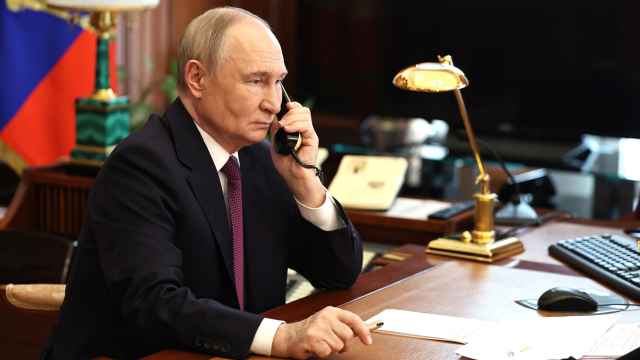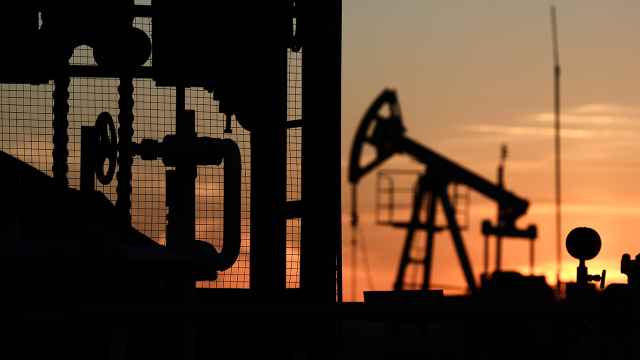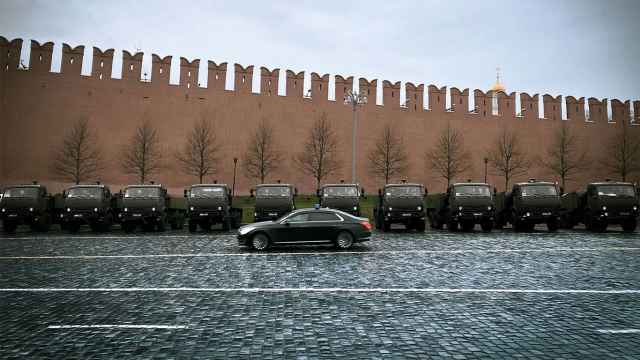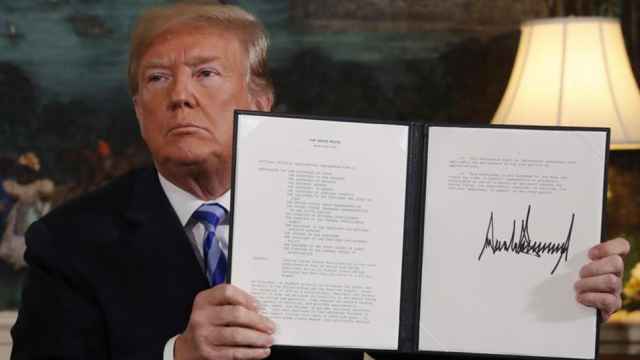Oil prices soared on Friday as Israel said it carried out attacks on “dozens” of sites across Iran, including its nuclear program, sparking fears that a wider conflict in the Middle East could disrupt global oil supplies.
Higher oil prices will benefit Russia, which had until now been bracing for a budget shortfall and slowed GDP growth as oil prices slumped and the ruble strengthened.
Brent crude surged as much as 13%, reaching $78.50 per barrel at its peak, according to Reuters.
U.S. benchmark West Texas Intermediate (WTI) climbed to $77.62 before retreating slightly. By 10:20 a.m. Moscow time, both benchmarks were still trading over 5% higher, at $72.90 and $71.50 per barrel, respectively.
Bloomberg said the oil increases marked the largest intraday gain since the days following Russia’s full-scale invasion of Ukraine in 2022.
The Russian stock exchange rose slightly at the start of trading on Friday, with oil and gold companies seeing the biggest increases in share prices. Rosneft shares had risen by 3.54% around noon Moscow time, while shares of Lukoil were up by 2.05%.
The Moscow Exchange (MOEX) Russia Index and the RTS were both up 0.33%.
Rosneft, Lukoil, Gazprom Neft, Surgutneftegaz and Tatneft saw their market value rise by 550 billion rubles ($6.9 billion) over three hours of trading, according to MOEX data.
Outside Russia, stocks fell across the board as investors fled riskier assets, with futures tied to the Dow Jones Industrial Average falling by 1.17% and S&P 500 futures dropping by 1.25%. Contracts for European stocks slumped 1.5%, according to Bloomberg.
“We are seeing classical risk-off moves,” Matthew Haupt, portfolio manager at Wilson Asset Management, told Bloomberg. “What we are watching now for is the speed and scale of the response from Tehran. That will shape the duration of the current moves. Quite often, these moves fade after the initial shocks.”
Earlier this year, a combination of resurgent OPEC+ production and dampened global demand had pushed oil below $60 a barrel, threatening to derail the Russian federal budget, which was based on oil prices of around $69.70 per barrel.
The Kremlin said it was concerned by Israel’s overnight strikes on Iran, condemning what it called a “dramatic escalation” of tensions between the two countries.
Israeli Prime Minister Benjamin Netanyahu said the overnight assault, dubbed “Rising Lion,” aimed to “roll back the Iranian threat to Israel’s very survival,” and warned that the campaign could last “many days.”
A Message from The Moscow Times:
Dear readers,
We are facing unprecedented challenges. Russia's Prosecutor General's Office has designated The Moscow Times as an "undesirable" organization, criminalizing our work and putting our staff at risk of prosecution. This follows our earlier unjust labeling as a "foreign agent."
These actions are direct attempts to silence independent journalism in Russia. The authorities claim our work "discredits the decisions of the Russian leadership." We see things differently: we strive to provide accurate, unbiased reporting on Russia.
We, the journalists of The Moscow Times, refuse to be silenced. But to continue our work, we need your help.
Your support, no matter how small, makes a world of difference. If you can, please support us monthly starting from just $2. It's quick to set up, and every contribution makes a significant impact.
By supporting The Moscow Times, you're defending open, independent journalism in the face of repression. Thank you for standing with us.
Remind me later.






